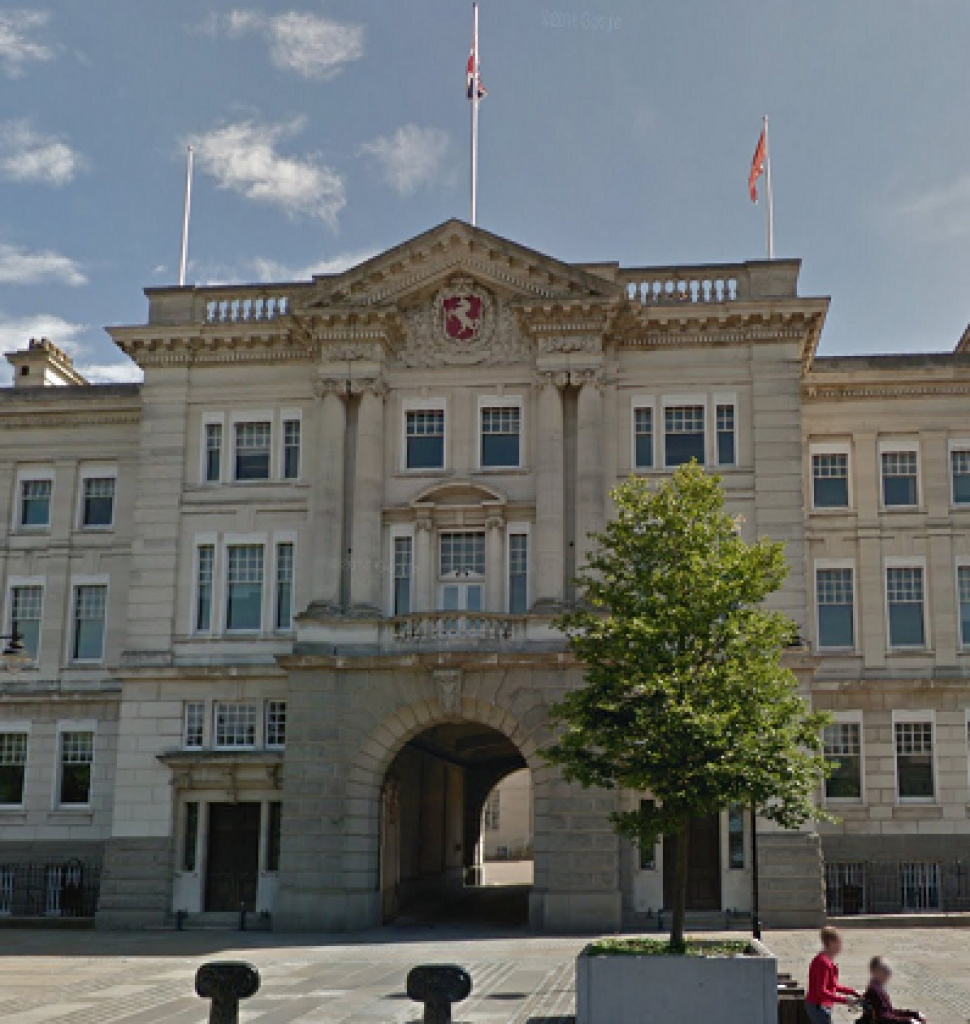The government has promised wide-ranging reforms to England’s “messy and often confusing” school landscape, after admitting unclear expectations on academies and councils let vulnerable children “fall through the gaps”.
The ‘Opportunity for all” schools white paper published today sets out a shakeup of the academy regime and plans to accelerate conversions – with big consequences for academy trusts, local authorities and schools.
The most eye-catching announcements include expecting trusts to have at least 10 schools or 7,500 pupils, ministerial powers to academise all of a council’s schools, curbs on trust monopolies, and potential ways for good schools to leave trusts.
2030 academy ambition has wiggle room
Education secretary Nadhim Zahawi unveiled a 2030 target on academisation as expected, but its phrasing leaves considerable wiggle room. All schools will either be in strong trusts this decade or have “plans to join or form one”.
Measures aimed at accelerating this drive include new powers for the minister to academise all schools in an area at its council’s request.
Zahawi will also let local authorities establish multi-academy trusts “where too few strong trusts exist”. Criteria for this are not included, but the DfE says it will help high-performing maintained schools to “formalise their relationships and add expertise and capacity to the trust system”.

Potential conflicts of interest will be managed through “safeguards”, including limiting councils’ involvement in trust boards.
The Local Government Association said ministers had “acted on our call”, and should now also let councils help “orphan” schools unable to find MAT sponsors.
But Michael Pain, who leads MAT support firm Forum Strategy, warned of “division and even conflict/competition” between trusts and councils.
The DfE is also consulting today on powers to force “coasting” maintained or academy schools – those with two consecutive Ofsted ratings below “good” – to convert or change trusts, under plans first proposed in 2019.
But regional directors, the new name for rebranded regional schools commissioners, will make “case-by-case” decisions- unlike the mandatory conversion of all “inadequate” schools at present. 16-19 providers will be exempt.
Trust expansion will be supported through £86 million trust capacity funding over three years, with the latest round now open. Dioceses will have further “options for financial support” to expand, boosting low Christian school conversions, following a recent pilot.
Legislation will protect faith schools’ “statutory freedoms and protections” on conversion. Nigel Genders, Church of England chief education officer, said such commitments should give Anglican schools “great confidence” in the all-MAT vision.
The government also proposes “letting” council-maintained specialist SEND providers join either specialist-only or mixed trusts, with consultation planned.
Meanwhile the DfE says it will “ensure selective schools are secure” in multi-academy trusts. Many are currently standalone academies.
The death knell has been sounding on single-academy trusts – with the DfE to also “avoid converting schools as standalone academies.”
There is an exception for free schools. Government will “consider” bids for high-quality free schools to open “initially” as standalone trusts.

Harris Federation chief executive Sir Dan Moynihan said overall reforms create a “coherent blueprint”, while the Confederation of School Trusts welcomed the all-MAT drive.
But the Institute of School Business Leadership warned of “potential turbulence resulting from resistance to change” – and called for more evidence backing the DfE’s vision.
The National Education Union’s general secretary Dr Mary Bousted called the plans a “souped-up version” of old reforms, and Geoff Barton, general secretary of school leaders’ union ASCL, said the 2030 deadline was not “helpful”.
Stricter regime for academy trusts
But the vision isn’t just for MATs.
Some 53 per cent of existing trusts have one school, and 75 per cent have under five.
Ministers now state they “expect that most trusts will be on a trajectory to either serve a minimum of 7,500 pupils or run at least 10 schools”. Such size is when trusts “typically start to develop central capacity”.
No mechanism is proposed for making small trusts do this, however, and ISBL highlighted standalone trust fears of being “compromised in favour of standardisation”.
Ganders said such size proposals mean “thinking carefully” about small rural schools, many of them Anglican, and “how a funding model can work for them”.
But conversely, the DfE proposes capping the proportion of schools one trust can run in any area. It suggests government has heeded warnings over “MAT monopolies“, though large trusts will welcome the fact there will be “no maximum size”.
The DfE also proposes a new set of statutory standards for all trusts, ditching its current reliance on regulating trusts through both legislation and their individual funding agreements. This will see new “statutory intervention powers”, providing a “robust” way to tackle trusts not achieving expected outcomes.
A consultation is planned on the “exceptional circumstances in which a good school could request that the regulator agrees to the school moving to a stronger trust”.
More changes could come longer-term from a regulatory review in May, “including how we will hold trusts to account through inspection”.
The department said in a press release that standards will focus on “the quality and inclusivity of the education they provide, how they improve schools and maintain their local identity, how they protect value for money for the taxpayer and how they develop their workforce”.

The document says this definition “must be the basis for transparent assessments of their potential for growth”.
Meanwhile the DfE says trusts “should have local governance arrangements” in plans it will “discuss” with the sector – suggesting trusts which have ditched local governing bodies may have to reintroduce them. And there will be “transparency measures” over top-slicing.
New council powers and regulator shakeup
Meanwhile, the new system would see councils “empowered to champion the interests of children”, as well as in some areas being able to launch trusts.
The DfE will “co-design” plans with councils in the coming months, including a right to object to the schools adjudicator when schools are not providing sufficient places.
Trusts’ duty to follow the admissions code will be made statutory. Councils will take responsibility for managing all in-year admissions applications, and get a “backstop power” to force trusts to admit children.

A new “statutory framework” on admissions will be consulted on to ensure decisions reflect children’s best interest, “including about the use of alternative provision”.
The statutory academy standards will include requiring trusts to work “constructively” not only with each other, but also with their local councils and the wider public and third sectors.
And there will be “a range of measures” to improve information-sharing on vulnerable children, including on attendance, exclusions and removal from school rolls. Local safeguarding partnerships will commission safeguarding “audits” every three years to ensure all schools’ policies follow the rules.
Kent county council’s director of children’s services Matt Dunkley said: “We appreciate the proposals to match local authorities’ responsibilities as system leaders with the appropriate powers to meet those responsibilities.”
The DfE also confirmed regional schools commissioners will be rebranded “regional directors” as part of a new “regions group”, which recently advertised for a £135,000-a-year director general.
Nine regional teams will continue RSCs’ work on trust expansion and intervention, but also take on non-financial regulatory roles previously held by the Education and Skills Funding Agency following its recent review. ESFA’s remit had included parts of academy governance, safeguarding and complaints.
Shadow education secretary Bridget Phillipson tweeted that Labour’s focus was “standards, not structures”, invoking a New Labour-era slogan, and arguing structural reform distracted from teaching.
DfE admits systemic flaws
The white paper defends the policy blitz by offering a rare critique of the semi-academised system minister have spent the past decade building.
The department has “not been able to intervene adequately” in trusts not meeting parents’ expectations, or to set out the “standards it expects all trusts to achieve” through regulation.

Schools, trusts and councils have “unclear and often overlapping roles”, allowing “grey areas which have sometimes allowed vulnerable children to fall through the gaps”.
Improvements have “not been uniform” and the DfE has “not systematically supported our strongest performing trusts to grow” – or incentivised them enough to work where they are needed.
“Many of our best schools operate alone, and not enough attention has been paid to harnessing the expertise already in the system,” the paper states.
Paul Whiteman, general secretary of school leaders’ union NAHT, agreed the system is “incoherent”. But he warned tidying it up would be controversial, disruptive on top of Covid disruption, and “risks being a distraction if the government fails to present a compelling case”.
The case for MATs
The white paper tries to do just that, however. The DfE makes one of its most detailed sales pitches yet for its favoured MAT model in an attached report, defending its bid to “spread the brilliance” of the best trusts.
It highlights a 2019 DfE report arguing sponsored academies improving faster than other comparable schools, and makes six references to a 2021 DfE survey of MAT schools. They reported improved expertise-sharing, recruitment, retention and curriculum resources. MAT teachers are more likely to move to disadvantaged schools, the DfE adds, citing a 2017 NFER report.
It says if all children did as well as the top tenth of trusts’ pupils, key stage two performance nationally would be 14 percentage points higher in reading, writing and maths – and even higher for disadvantaged pupils.
The best MATs also out-perform maintained secondaries on progress 8 by 0.2, the DfE said. But it acknowledged top single-academy trusts do better, and the “worst poorest performing MATs do worse than the poorest performing LAs”.
It also notes many under-performing schools joined MATs and high-performing schools became SATs, meaning any analysis merits “caution”.
















If the school system ‘that has evolved over the past decade is messy and often confusing’, then whose fault is that? The Academies Commission warned about that in 2013. The government should hang its head in shame.